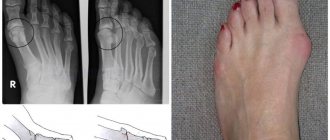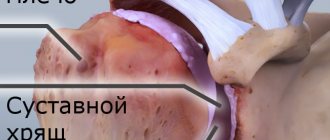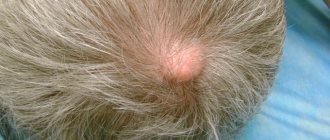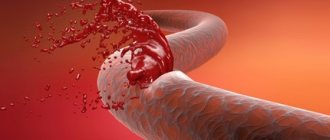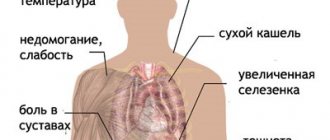March 29, 2018
Neurology is a branch of medicine that deals with the study of diseases of the central and peripheral nervous system. It is very closely related to other areas, namely psychiatry, anatomy, neurogenetics and others. Some people mistakenly call neurology any disease of the nervous system in humans. But it is still worth remembering that this is a direction in medicine, and not a specific ailment.
According to statistics, neurological diseases occupy one of the first places in the world in terms of prevalence. They can arise and actively develop at any age, and sometimes even in the womb. In such cases, we are talking about congenital pathology. An unhealthy lifestyle, injuries and severe stress can also cause the development of diseases. Taking into account the modern rhythm of life, the first signs of illness can appear even in young and, at first glance, absolutely healthy people.
Neurological diseases
The most common ailments are:
- Migraine . It is difficult to imagine a person who has never had a headache in his life. Some people don’t even consider it a disease - just temporary discomfort. One tablet and the problem is solved in literally 15–20 minutes. But there are people whose headaches appear frequently and last a long time, and miracle pills do not help. You cannot do without consulting a neurologist.
- Insomnia . This disease is more severe than the first, although most people do not take it seriously. Keeping sleeping pills on hand at all times is not the best way out of the situation. Without taking action in time and without undergoing a course of treatment, a person risks getting epilepsy, arthritis, stroke and other diseases of the nervous system.
- Epilepsy . Doctors still cannot fully determine all the reasons why it occurs. At the same time, genetic predisposition has not been proven: some patients have relatives suffering from epilepsy, but the relatives of others know about this disease only by hearsay. The cause of the disease can be a tumor, head injury, impaired blood supply to the brain, and even viruses. Epilepsy is accompanied by convulsive seizures. What is noteworthy is that the patient does not remember at all what happened to him during the seizure. Therefore, relatives must be nearby during an attack so that the patient does not harm himself.
- Stroke . A common disease among older people. Prompt assistance during an attack is fundamental to the patient’s continued well-being. A stroke is a consequence of impaired blood circulation in the brain. The blockage of the artery occurs gradually, and the attack itself is the result of hemorrhage in vulnerable places. The likelihood of a stroke is very high if the patient suffers from diabetes, arrhythmia, pressure changes, or is overweight. The disease can be identified by appearance, speech and coordination of movements. On one side of the body, muscles fail, so a crooked smile is often observed, and a person cannot raise his arms to the same level.
- Multiple sclerosis . One of the most dangerous diseases. The myelin endings of the nerves are destroyed and plaques form in their place. They interfere with the normal flow of impulses from the brain to other organs. Timely diagnosis and proper treatment can slow down and stop the development of the disease, even for several years.
- Alzheimer's disease. A severe neurological disease characterized by memory loss in the patient. A person cannot remember what he did literally half an hour ago, simple words, and even forget who he is and where he lives.
For any neurological disease, it is important to “sound the alarm” as early as possible and consult a doctor. When the first signs appear, you should definitely conduct the necessary research.
Non-drug ways to deal with a nervous breakdown
- Sports activities. Sports exercises will help you calm down and recharge yourself with positivity. This method has not harmed more than one patient. Sport improves heart function, brain function, and sleep.
- Relaxation programs: meditation, yoga, body massage. Relieve tension, relax the body, get rid of negative thoughts. Do it at least 2 times a week.
- Maintaining a healthy lifestyle. No matter how strange it may sound, it helps. Alcohol, drugs, coffee - all this affects the nervous system.
- Proper nutrition, essential vitamins.
Neurology in children
A difficult area in medicine that requires maximum care and highly qualified specialists. Neurology in children differs significantly from diseases in adults. The thing is that at a very young age the disease develops differently and is accompanied by unexpected symptoms and signs, which sometimes cannot even indicate its presence.
Neurological diseases in children can result from:
- injuries after difficult childbirth;
- unhealthy lifestyle of a pregnant woman (smoking, drug use, alcohol);
- hypoxia in the womb;
- predisposition - if the parents have genes for the disease;
- infections;
- the special location of the fetus in the womb (this often includes the entwining of the umbilical cord around the baby’s neck).
Although neurological diseases in children can appear at any age, most of them can be detected at the earliest stages and even during pregnancy. Early diagnosis allows you to start a course of treatment on time, which increases the chances of a full recovery and further normal development.
It is for this reason that young parents are strongly advised to show their child to the pediatrician regularly. In case of minimal deviations, he will refer you for examination to a neurologist and other specialists.
With the help of drugs and medicines
- Medicine offers drugs with sedative effects. Dizziness and heart problems can be treated with medication. These are not pills that will cure your relapse, but they will make you feel much better. Medicinal use is one of the most effective.
- Preparations based on plant extracts have a calming component.
- Vitamins. When you are stressed, you especially need to enrich yourself with vitamins such as group B, vitamin E, magnesium, calcium, so that depletion does not occur.
- Biologically active additives. They contain extracts of soothing plants.
- Antidepressants. Strong drugs that should never be used without a prescription. They have many side effects, so they are prescribed in emergency situations.
Causes of nervous system diseases and their symptoms
What can be the impetus for the appearance and development of diseases? A number of reasons include:
- constant stress and tension;
- feeling of emotional emptiness and discomfort;
- sleep disturbance, lack of sleep;
- lack of activity;
- sedentary lifestyle;
- consequences of previous infectious diseases and head trauma;
- unbalanced diet;
- alcohol abuse;
- lack of vitamins, minerals and other beneficial substances in the body;
- drug use.
Elderly people are most susceptible to neurological diseases due to the increased likelihood of accelerating degenerative processes. However, in recent decades, diseases have become “younger”, affecting people of middle age and younger.
What symptoms of the disease should alert you? This:
- Headaches of various types. They can be compressive or occur suddenly and spontaneously. In the first case, it seems that the head is compressed by a hoop. The second attack is preceded by a flash, the patient is irritated by loud sounds, light and other factors. Sometimes your head hurts so much that you can’t stand or sit, much less work or play sports.
- Dizziness. A person loses a sense of balance when walking, and may even lose consciousness. This is often caused by damage to the vestibular apparatus or disruption of blood flow through the arteries of the spine. Dizziness can result from a sharp turn of the head in any direction.
- Speech, writing, reading disorders. The patient has difficulty pronouncing even ordinary words, not understanding the speech, despite the fact that he hears it. Difficulties may arise with the names of the most common objects and recognition of loved ones and relatives.
- Movement violation . May manifest as weakness of the limbs or even involuntary actions. These phenomena are called paralysis. This also includes increased muscle tone, spasms, tremors and convulsions. The level of damage and methods of treatment can only be determined by a doctor.
- Visual impairment. If the patient does not have eye diseases, then decreased acuity and narrowing of the field are a characteristic symptom of neurological ailments. In this case, the examination is carried out together with an ophthalmologist.
- Sensory impairment . A person does not feel cold, warmth or even pain. There may be no sensitivity either in a certain area of the body or in the entire limbs.
- Hearing loss. Ringing and tinnitus are often a symptom of neurological diseases. Typically accompanied by headache or dizziness. The patient should also be wary of hyperacusis - a sharp increase in hearing, which leads to irritability with sounds.
Panic attacks, a lump in the throat and excessive tearfulness are also symptoms of diseases of the nervous system. It is worth coming to see a doctor even if one of them is identified. Early diagnosis and identification of the problem is the key to successful treatment and quick recovery.
Diagnostics
Conventionally, all methods for identifying neurological diseases can be divided into manual, instrumental and laboratory.
In the first case, the examination is carried out by a doctor in the office using a special hammer. He tests the patient's sensitivity in various ways. If this method is not enough or the problem is serious, the specialist will prescribe additional studies.
Instrumental diagnostics are carried out using electric wave, radiation or ultrasound equipment.
Electrical ones include:
- EEG (electroencephalography) is a painless procedure that will help diagnose epilepsy, panic attacks and migraines. With the help of such equipment, it is possible to detect brain damage due to trauma and concussion.
- Electroneuromyography. It involves recording the electrical activity of muscles and the functioning of the central nervous system. Allows you to identify myotonia, dystonia, stages of development of sclerosis and other similar ailments.
All procedures must be carried out by experienced specialists who are able to identify signs of the disease during diagnosis.
Radiation methods include X-ray, computer, magnetic resonance and nuclear magnetic tomography. They can identify tumors and neoplasms, cysts and traumatic brain injuries. An image of the area being examined is displayed on the screen. The picture can be enlarged or reduced to assess the threat or search for it. Functional methods include those radio wave studies, during which you can see the organ in dynamics.
In modern neurology, ultrasound examinations also help to diagnose diseases: Dopplerography and echocardiography.
How to stay healthy
The main reason for the appearance of diseases of this type is disruption of the nervous system. If they have not been a pathology since childhood, then their occurrence can be triggered by chronic fatigue, constant stress at work and at home, bad habits, as well as a lack of vitamins in the body. To prevent the development of neurological diseases, you just need to:
- exercise – preferably regularly, and not a couple of months of intense exercise a year in order to “lose weight by summer”;
- rest fully - this means healthy sleep of at least 8 hours a day (at night, not during the day);
- eat right - it is with food that we get all the nutrients the body needs, so watch what’s on your table;
- walk in the fresh air - it doesn’t matter whether you decided to take a walk after work or deliberately went to the park. If the weather permits, and things can wait 15–20 minutes, then why deny yourself the pleasure.
Alcohol and tobacco abuse can also cause neurological diseases. Toxic substances have a destructive effect on the entire body as a whole. Do you smoke? Drop it! The body will thank you with good health and excellent mood. As for alcohol, nothing bad will happen from a glass of good wine with dinner. The main thing is to know when to stop.
How to protect yourself from breakdown
The most important thing is to correctly identify the disease and begin treatment for the breakdown from any side. Unfortunately, many people accept the appearance of irritability, insomnia, bad mood and a number of other factors as a phenomenon with which absolutely everyone lives. Therefore, you should not contact a neurologist. But that's not true! It is important for your loved ones to be there at this moment when it is difficult to survive everything! Experts require that treatment be started as early as possible.
Stress is not a normal condition and must be treated! Don’t be afraid to disturb the doctor with your trivial questions - sleep disorders, mental disorders, tearfulness, forgetfulness, memory impairment, dizziness, and more. These are all points that can be resolved at the formation stage. But if you do not pay attention to them, then you can wait for clinical depression, which can only be gotten rid of with the strongest drugs, the use of certain tranquilizers.

